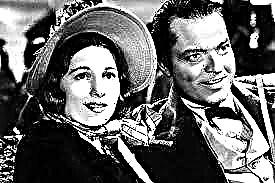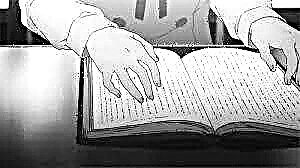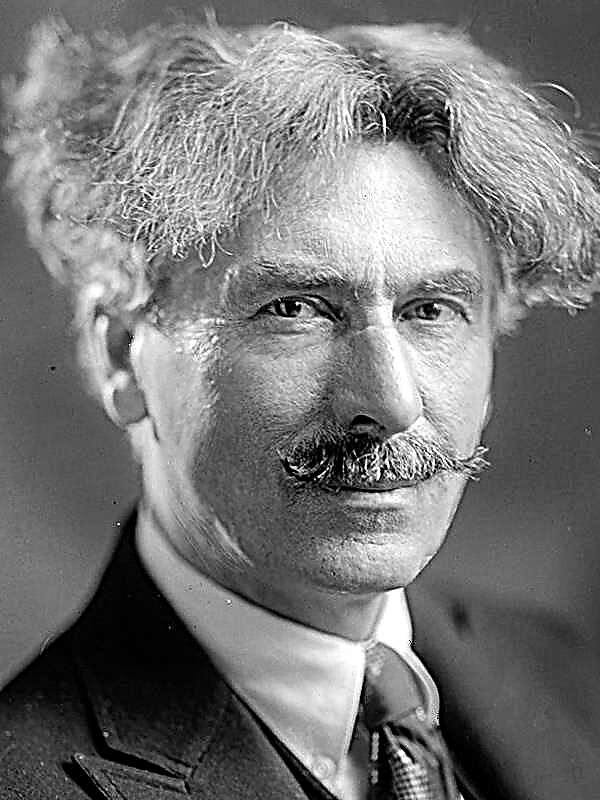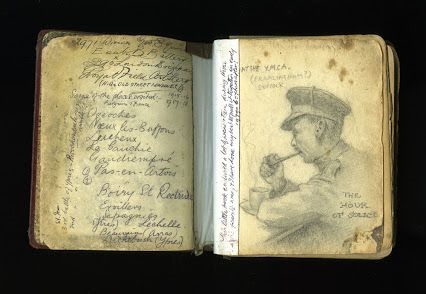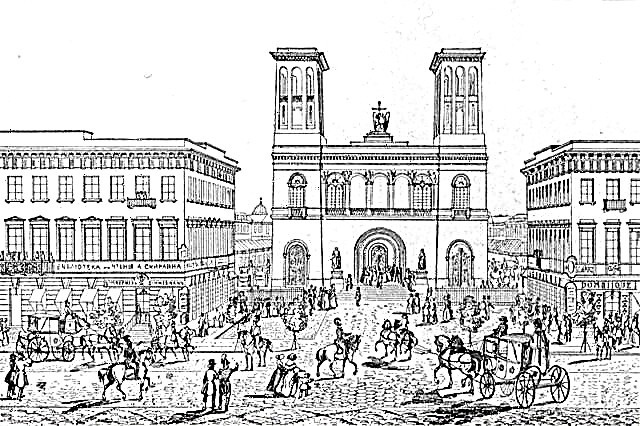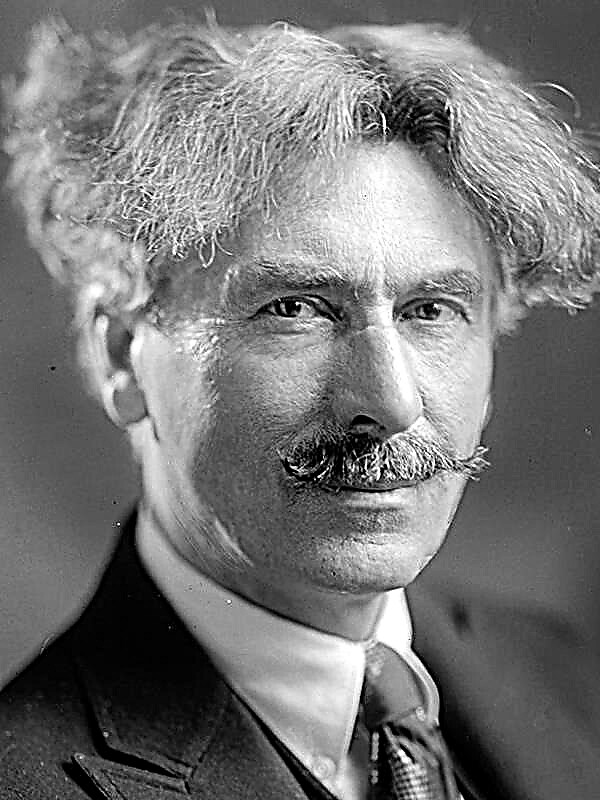The author's preface is dedicated to reporting what interests Mercier in Paris - public and private morals, prevailing ideas, customs, scandalous luxury, abuse. “I am interested in the generation that is contemporary to me and the image of my century, which is much closer to me than the hazy history of the Phoenicians or Egyptians.” He considers it necessary to report that he deliberately avoided satire on Paris and Parisians, since a satire aimed at a specific person does not correct anyone. He hopes a hundred. years later, his observations of the life of all walks of life in a huge city will merge "with the observations of the century."
Mercier is interested in representatives of various professions: cabmen and rentiers, modists and hairdressers, water carriers and abbots, officers and bankers, alms collectors and teachers, in a word, everyone who earns a living in various ways and gives others the opportunity to exist. University professors, for example, manage to instill in their students an aversion to science, and lawyers, due to unstable laws, are unable to think about the outcome of the case, and go in the direction where they are attracted by the client’s wallet. Sketches of Mercier are not only urban types and inhabitants, but also a portrait of the city. The best panorama, in his opinion, opens from the tower of the "Cathedral of Our Lady" (The face of a big city). Among the "paintings" you can find Urs Street and Yuschett Street, Cite and St. Louis Island, Saint-Chapelle and the Church of St. Genevieve. He paints the places where all of Paris is going for festivities - the Palais Royal and Lon Shan. “There are going to cheap cocottes, and courtesans, and duchesses, and honest women.” The common people in festive clothes mix with the crowd and stare at everything that should be looked at during the days of general festivities - beautiful women and crews. In such places, the author concludes that beauty is not so much a gift of nature as a "hidden part of the soul." Vices such as envy, cruelty, cunning, anger and stinginess, always appear in the look and expression. That is why, the writer notes, it is so dangerous to pose to a person with a brush in his hand. The artist is more likely to determine the occupation and way of thinking of a person than the famous Lafater, a Zurich professor who wrote so much about the art of recognizing people by their faces.
The health of residents depends on the state of air and the purity of the water. A number of essays are devoted to those industries without which the life of a gigantic city is unthinkable, but it seems that their purpose is to poison Paris with toxic fumes (Fat digging, Slaughterhouse, Corrupt air, Veterinary pits). “What could be more important than the health of citizens? The strength of future generations, and therefore the strength of the state itself, does not depend on the care of the city authorities? ” - asks the author. Mercier proposes to establish a “Sanitary Council” in Paris, and its composition should include not doctors who, by their conservatism, are dangerous to the health of Parisians, but chemists, “who made so many wonderful new discoveries that promise to introduce us to all the secrets of nature.” Doctors, to whom the writer devoted only one “picture”, are not left unattended in other sketches. Mercier argues that doctors continue to practice medicine in ancient, rather dark ways, only to secure more visits and not give anyone a report on their actions. They all act as accomplices, if it comes to the consultation. The faculty of medicine, in his opinion, is still full of the prejudices of the most barbaric times. That is why, to preserve the health of Parisians, it is not a doctor that is required, but scientists of other professions.
Mercier considers the improvement of living conditions among the closure of the cemetery of the Innocent, which has turned out over the centuries of its existence (since the time of Filsch the Beautiful) in the very center of Paris. The author is also occupied by the work of the police, to which rather lengthy (in comparison with others) sketches are devoted (composition of the police, head of the police). Mercier states that the need to restrain a lot of hungry people who see someone drowning in luxury is an incredibly heavy duty. But he couldn’t resist saying: “The police are a bunch of villains” and further: “And from these disgusting scum of humanity public order will be born!”
For a student of public morals, interest in books is logical. Mercier argues that if not all books are printed in Paris, then they are written in this city. Here, in Paris, there live those to whom the essay “On Half-Writers, Quarter-Writers, Métis, Quarterons, etc.” is dedicated. Such people are published in Heralds and Almanacs and call themselves writers. "They loudly condemn arrogant mediocrity, while they themselves are both arrogant and mediocre."
Talking about the corporation of parliamentary Parisian clerks - Bazoche - the author notes that their emblem consists of three ink tanks, the contents of which fill and ruin everything around. Ironically, the bailiff and the inspired writer have common tools. Mercier is no less sarcastic about the state of the modern theater, especially when trying to stage tragedies in which the bandmaster tries to portray the Roman senator, while wearing the red robes of a doctor from Moliere's comedy. With no less irony, the author speaks of a passion for amateur performances, especially for staging tragedies. Mercier includes a new type of performance public reading of new literary works. Instead of getting an opinion and getting advice from a close friend, writers seek to publicize their work in one way or another competing with members of the French Academy who have the right to publicly read and publicly listen to praise addressed to them. In the 223rd “picture”, the writer regrets the loss of such marvelous spectacles as fireworks, which were released on solemn days - such as: St. Jean or the birth of princes. Now these days prisoners are released and poor girls are married.
Mercier did not lose sight of the small chapel of Saint Joseph in Montmartre, in which Moliere and La Fontaine rest. He talks about religious freedoms, the time for which finally came in Paris: Voltaire, who had previously been denied burial, received a mass for the repose of his soul. Fanaticism, the author concludes, devours himself. Then Mercier talks about political freedoms and public morals, the reason for the fall of which lies in the fact that "beauty and virtue have no value at us if they are not backed by a dowry." Hence the need for the following "paintings": "Under any name, About some women, Public women, Courtesans, kept women, Love affairs, About women, About the idol of Paris - about the" charming "." No less detailed and vividly reflected in the sketches of “Lombard, Monopoly, Departmental Office, Petty Trade”. Attention is also paid to such vices of Paris as “Beggars, Needy, Foundlings, Detention Places and Investigative Departments”, the foundation for which was the desire “to quickly clear the streets and roads of the poor, so that it would not be seen glaring poverty along with brazen luxury” (picture 285).
The life of high society has been criticized in "paintings": "On the court, High society tone, Secular language." The quirks of high society and court life are reflected in sketches devoted to various details of fashionable toilets, such as “Hats” and “Fake Hair”. In his discussion of fashionable headgear, Mercier describes the influence of Paris on the tastes of other countries: “And who knows, will we continue to expand our glorious conquests as happy winners?” (Picture 310). Comparison of the aristocracy with the commoner is not in favor of a lady from high society who blindly follows due to estate vanity for all fashion freaks - “Diseases of the eyes, skin inflammations, lice are the result of this exaggerated addiction to the wild hairstyle, which does not leave even at night recreation. Meanwhile, a commoner, a peasant woman does not experience any of these troubles. ”
The author did not ignore such an institution, which, in his opinion, could have arisen only in Paris, is the French Academy, which rather hinders the development of the French language and literature than promotes the development of both writers and readers. The problems of literature are analyzed in the sketches “Apology of Writers, Literary Quarrels, Graceful Literature”. The last, 357 "picture", completes the work of Mercier and is written as "Reply to the newspaper Courier de l'Europe". Comparing all the praises and criticisms, the author turns to his reader with the words: “Do you want to pay me to be rewarded for all my sleepless nights?” Give from your excess the first afflicted, the first unfortunate that you meet. Give my compatriot a memory of me. ”

